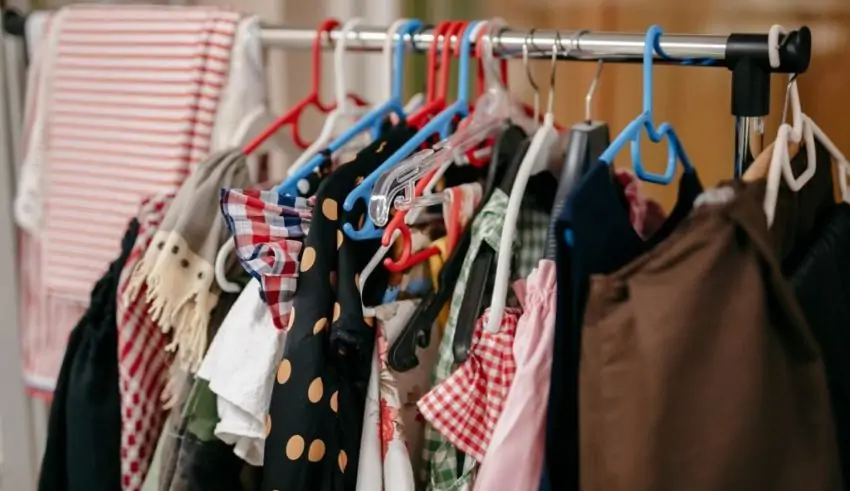

(C) Lazy Dad Kid Clothes
Young children labeled as “lazy dad” wore garments with slogans and images suggesting their father was lazy or unconcerned about their upbringing. Among these were baby socks declaring “Daddy doesn’t take care of me at all” and t-shirts bearing “Daddy’s always sleeping.” Originally marketed as lighthearted and funny, these products quickly generated a lot of controversy since they sought to play on prevalent preconceptions.
Strong public uproar combined with careful study of the consequences of such messages drove the decision to remove these products from shelves. Many important elements helped to explain the cancellation:
Men were depicted in the clothes line as either absent or poor parents, which created bad impressions of them. This representation undercuts paternal participation in child-rearing, therefore promoting out-of-date ideas that fathers are less capable or significant in the life of their children than mothers. Emphasizing these negative ideas, the clothes manufacturer hindered the efforts of committed and concerned fathers, thereby supporting bad society standards.
Moreover, the designs highlighted the unfair load mothers sometimes carry in raising children. The clothing company seems to overlook the more fundamental problem of gender norms and expectations in parenting by concentrating primarily on the alleged failings of fathers. This one-sided point of view ignored the difficulties many families had in striving for balance and hampered initiatives meant to assist in fulfilling equitable parenting duties. It implied that while men are lazy or apathetic, a portrayal that is both unfair and destructive—that only moms are in charge of raising children.
Many parents, men and women equally, thought the clothes were improper and offensive. It discounted the efforts of fathers who actively help to raise their children. Many who have great satisfaction in their active parenting responsibilities felt enraged by the notion that fathers are naturally sluggish or disengaged since it is a negative and unjust stereotype. This answer made rather clear how attentively children’s products should present parenting responsibilities.
Personal Views of the People
The “Lazy Dad” kid clothing line got generally bad and quick public reaction. Posts from angry parents, parenting groups, and lobbying organizations flooded social media sites. Many urged others to demand a boycott of the brand responsible, so supporting businesses upholding inclusive and healthy parenting values.
Well-known parenting bloggers and influencers have joined the debate using their platforms to criticize the clothes line and support more appropriate representation of fathers. These celebrities pushed businesses to take into account the wider social effects of their products and underlined the need of valuing all the efforts of all caregivers. The widespread critique focused on the shared rejection of the preconceptions the clothing brand promoted.
Learning from Experience and Results Based Approach
Businesses could learn a lot from the debate around the “Lazy Dad” child clothing on the likely results of supporting gender stereotypes and negative sentiments. It emphasizes the need of exact product design and marketing that honors and raises every member of the family.
Reacting to the matter, the brand quickly took the guilty products off its shelves and formally apologized. They promised to closely go over their marketing strategies and product development to make sure next introductions reflect inclusive and upbeat ideas. This event has caused the company to change its strategy and aim more for inclusive and polite portrayal of parental responsibilities.
The program has spurred more general debates on how society views and values different parenting philosophies. It underlined the continuous need of initiatives to eradicate prejudices, advance women equality in parenting, and guarantee that every parent feels valued in their responsibilities. The discussion focused on the need of appreciating the efforts made by every caregiver, regardless of gender.
Businesses have to start thinking ahead about the larger social consequences of their products and marketing plans. Companies could help to create a society more fair and peaceful by supporting inclusive and favorable images of parenting. This events reminds us of the need of sensitivity and thinking in all spheres of marketing and product development as well as the influence of public opinion.
The fifth prisoner exchange took place on 6 May 2025 between Russia and Ukraine involving 205 prisoners and it is…
Established in the year 1921 and it still continues to showcase the legacy of this game through generations. This ‘Emperor’s…
The NBA Playoffs of 2025 would have much perdition during the matches of the second round. In the East, the…
Jimmy O.Yang, the Asian standup comedian established his name in the international stage and he is more popular among the…
Bill Gates of the Bill & Melinda Gates Foundation declared during the Philanthropy Asia Summit on May 5, 2025 that…
The game changer of the Netflix streaming is the South Korean nail biting survival thriller web series “Squid Game” and…
This website uses cookies.
Read More